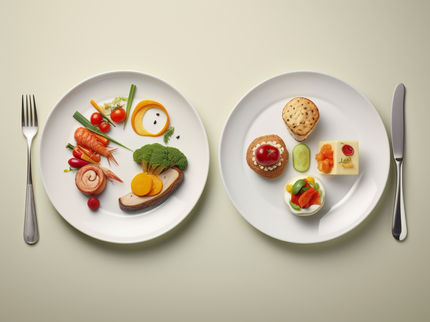To make you big and strong - So kids eat healthier
Advertisement
Children do not necessarily eat the healthiest foods. US researchers have now investigated what causes them to eat unloved food anyway. The greatest success was when the children were repeatedly offered food and were told what benefits it would have for them.

Photo by Ella Olsson on Unsplash
Quinoa grains and lentils do not lie on the classic children's plate. Earlier studies had already shown that children are more willing to try new foods if they are offered them more often. It also has a positive effect when children are praised for their food or when adults talk well about a meal and say, for example, "This is delicious".
In a study published in the Journal of Nutrition Education and Behavior, researchers combined both approaches. 87 children between the ages of three and six were served unpopular food for six weeks and two days each: Tomatoes, green peppers, lentils and quinoa.
The researchers around Jane Lanigan from Washington State University in Vancouver (USA) then investigated what was most likely to influence eating behaviour. One of the two least loved foods was simply offered over and over again, the other was also advertised. For example, they said that vegetables help people not to get sick. Lanigan stressed that the sentences should address children's goals while providing correct nutritional information.
Both methods showed approximately the same effect after six weeks. Then the children were given a month's experimental break and the researchers tested their eating habits again. Now the combined method had a much better effect: Compared to the time before the break, the children ate about seven grams more of the previously unloved food, which was only served repeatedly. If the food had been additionally advertised, they ate even 14 grams more. The researchers explained that the combined effect of the amount of food was only apparent at a late stage by the fact that all children were perhaps initially somewhat bored after weeks of eating the same vegetables. (dpa)
Note: This article has been translated using a computer system without human intervention. LUMITOS offers these automatic translations to present a wider range of current news. Since this article has been translated with automatic translation, it is possible that it contains errors in vocabulary, syntax or grammar. The original article in German can be found here.
Most read news
Other news from the department science

Get the food & beverage industry in your inbox
By submitting this form you agree that LUMITOS AG will send you the newsletter(s) selected above by email. Your data will not be passed on to third parties. Your data will be stored and processed in accordance with our data protection regulations. LUMITOS may contact you by email for the purpose of advertising or market and opinion surveys. You can revoke your consent at any time without giving reasons to LUMITOS AG, Ernst-Augustin-Str. 2, 12489 Berlin, Germany or by e-mail at revoke@lumitos.com with effect for the future. In addition, each email contains a link to unsubscribe from the corresponding newsletter.
































































